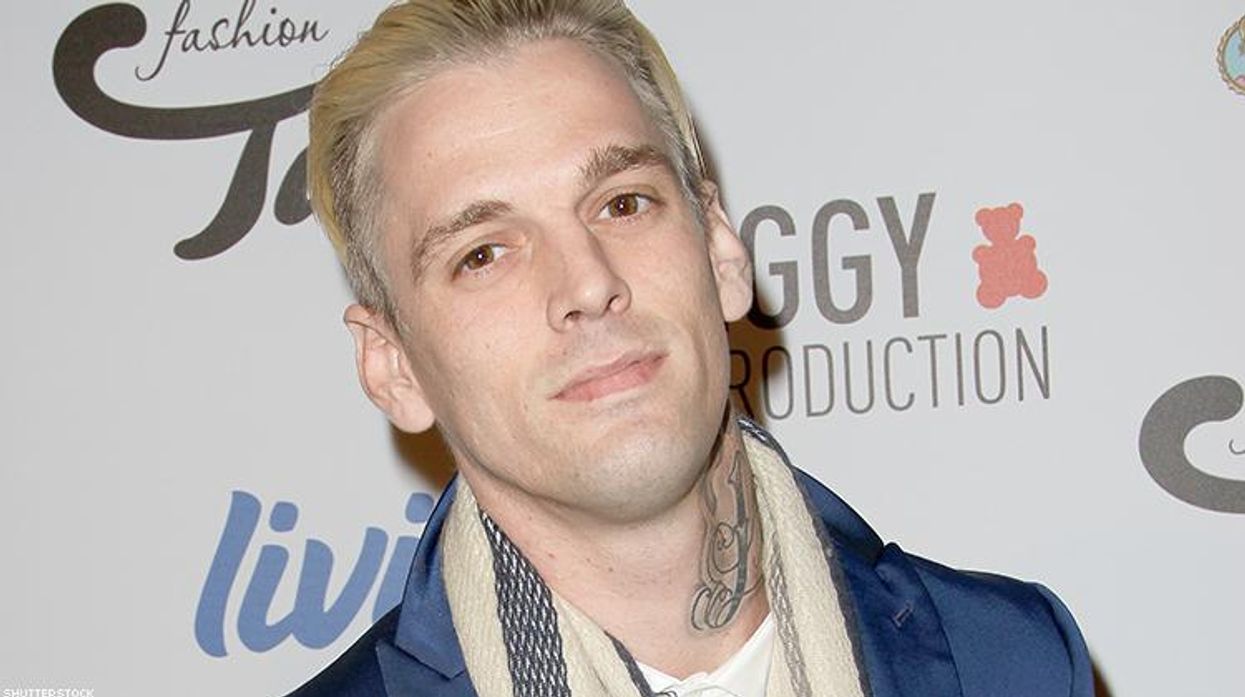Last August, singer Aaron Carter came out as bisexual in a heartfelt Twitter post. In it, he wrote about how he had carried around the weight of being closeted about his attraction to both men and women, and he expressed relief in finally being open about it.
Now, Carter, 29 (who is the younger brother of Backstreet Boys singer Nick Carter) said in a podcast on Hollywood Life that his comments were "misconstrued."
"Yeah, no," Carter said when asked if he would date a man. "It was more so just a story that happened when I was like 17 with somebody, and I can find men and women attractive, but when it comes down to it, I think it was a little misconstrued," Carter replied. "I see myself being with a woman and having kids. I want to have a family."
Considering that bisexual people and same-sex couples settle down and have kids together all the time, Carter's response to the question appears tinged with stigma around being bisexual to some activists. His reply was a far cry from the now deleted post he wrote last summer, in which the young man, who had famously dated the likes of Hillary Duff and Lindsay Lohan, also shouted out to LGBT people who made him feel as though he belonged.
"There's something I'd like to say that I feel is important for myself and my identity that has been weighing on my chest for nearly half of my life," Carter wrote last summer. "I grew up in the entertainment industry at a very young age, and when I was around 13-years-old I started to find boys and girls attractive."
Following his initial post last summer in which he came out about his attraction to men and women, Carter appeared on an episode of The Doctors, during which he confirmed he was bisexual, and that he would be open to dating a man if one "comes into my life and sparks an interest."
What may appear to some like a flip-flop on Carter's part is all too familiar to members of the bi community who cite stigma as a harmful culprit that keeps people closeted.
"It sounds like Aaron is misconstruing preference with identity. Many bisexuals have a preference for a specific gender--and those preferences can sometimes be fluid over the course of a bisexual's life but Aaron's comments sound like he doesn't want being bi to interfere with his ability to find a meaningful relationship with women," Nicole Kristal founder of the advocacy group Still Bisexual, told The Advocate via email.
"Sadly, this is the reason many bi men go back in -- or stay -- in the closet because of the stigma against bisexual men. Being out can limit your opportunities with women--even if you're Aaron Carter," Kristal added. "That's why educating the public in order to debunk these stereotypes is so crucial for the Bi+ community. Being bisexual shouldn't limit your opportunities to find love."
During his interview with Hollywood Life, Carter reiterated his desire to be settled down with a woman and to have children. "I keep telling people that," he wants to be with a woman. "I don't want it to be misconstrued too much just because I was open about a story."
Kristal added that the public pressures that force someone like Carter to essentially take back an identity he claimed can lead to more stigmatization for bisexual people.
"When we have role models like Aaron going back into the closet it inspires bisexuals to stay in the closet and leads monosexuals to continue to see us as 'going through a phase' or 'confused,'" she said.





































































Charlie Kirk DID say stoning gay people was the 'perfect law' — and these other heinous quotes